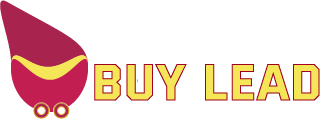Off-page SEO is an important part of a successful web marketing strategy, which is why at SEOlogy we are experts and we are always available to help you with whatever you need.
In this guide, we’re going to dive deeper into off-page SEO and help you understand what it is, why it’s so important, and show you the tactics you should use if you want to rank high on Google and boost your site’s growth.
What is off-page SEO?
Off-page SEO focuses on covering tactics that are carried out outside a website. These are the elements that allow creating references to my website through optimization actions external to the website itself and mainly the creation of external links.
It could be considered to consist solely of link building, although other Off Page SEO techniques can be applied to achieve a competitive advantage, such as brand building, citation generation, content marketing, social media, among others.
Differences between on-page and off-page SEO
- On-Page SEO – This covers the tactics you use on your site to help search engines better understand and rank your content. From creating great content on your site, optimizing title tags, meta tags, and heading tags, to internal linking, image optimization, and more, all of these are considered part of on-page SEO.
- Off-Page SEO: This includes those tactics that relate to activities conducted outside of your own website. Link building is often considered the primary off-page tactic. However, this also includes tactics such as content marketing, social media, podcast participation, reviews, local citation generation, and more.
Off-page SEO actions
As we mentioned earlier, there are a wide variety of techniques that we can carry out to improve search traffic and the positioning of our website in search results. Some of the most important are:
- Link building
- Local SEO
- Social networks
- Forums
- Brand building
- Reviews
Link building is one of the most important tactics in off-page SEO. Links are an important signal for search engines, like Google, that help evaluate the quality and relevance of a website. This is why links are considered the backbone of any off-page SEO strategy.
Websites that have quality links from other websites with high authority are more likely to rank on the first pages of search results. It is important to understand how to approach this tactic in off-page SEO to get the best results.
The main goal of link building is to build your how to build telemarketing data website’s authority. Links coming from high authority websites are a signal of trust from one site to another. These links are especially valuable because Google and other search engines consider websites with high authority to be more trustworthy and relevant.
The more quality links you get, the better your website’s authority will be and the more likely you are to appear in the top search results.
It is important to note that although the main goal of link building is to get quality links, the quantity of links also plays an important role.
What is link building?
Link building is a way to improve your website’s ranking by creating links from other websites. These links can be created by you or requested from others, but it is important to make sure that they come from trustworthy and high-authority websites.
Be careful when performing off-site SEO ovu tehniku uvjeravanja? actions to avoid partnering with untrustworthy websites or falling prey to spam. Off-site SEO results can take time to arrive, so avoid dishonest “black hat” SEO practices.
Backlinks: What are they?
Backlinks are inbound links, because they point from the linking website to the linked website. While for the linking website it is an external link, for the linked website it is an inbound link.
Types of backlinks
- Follow Links: They transmit authority from the source web page to the destination site.
- No Follow Links: They do not transmit authority, but they give naturalness to SEO.
- Natural (organic) links: Created spontaneously by other websites.
- Artificial links (link building): Created “theatrically” by other websites at their own request or at the request of the linked website in exchange for money, link exchange, etc.
What is link baiting?
Link Baiting is a way to improve your website’s ranking by creating original and engaging content (videos, infographics, articles, etc.) that encourages users to share it on their own websites in a natural way.
This can generate valuable, organic links to your website. To achieve this, create content that meets the needs of your target audience and offer them something they can’t resist.
What is the importance of links?
Inbound links are important because they afb directory influence Page Rank, the way Google ranks the notoriety of a website based on the quality and quantity of its backlinks on a scale of 1 to 10.
When page A links to page B, page A transfers a certain value based on its PageRank to page B (Link Juice). The more links you receive from different pages, the more your PageRank increases.
Link building strategies
Here we tell you some of the most effective link building strategies in the world of off-page SEO:
Guest Posting
Guest posting is writing an article for another website and linking back to your website. This helps in building backlinks.
It is important to choose a website with the same audience and similar topics so that the link has a greater impact on your ranking. Make sure that the link is “do-follow” so that it is valuable.
Redirecting broken links
Broken links are links that no longer work ( 404 error ). If you find one on a website, contact the owner and suggest that they include a correct link to your website.
Search engines don’t like 404 pages, so the site owner is likely to accept your proposal. This can improve your ranking.
Reciprocal links
A reciprocal link is when two websites link to each other. Google used to value them, but now prefers one-way links, which look more natural and authentic. Google can’t determine whether a reciprocal link is natural or not, so it tends to value one-way links more.
What is Authority Score?
Authority Score is a score that measures the quality of a website and its potential impact on backlinks. This score is based on several data points, such as the quantity and quality of backlinks, the number of referring domains and IP addresses, and whether the links are follow or nofollow.

